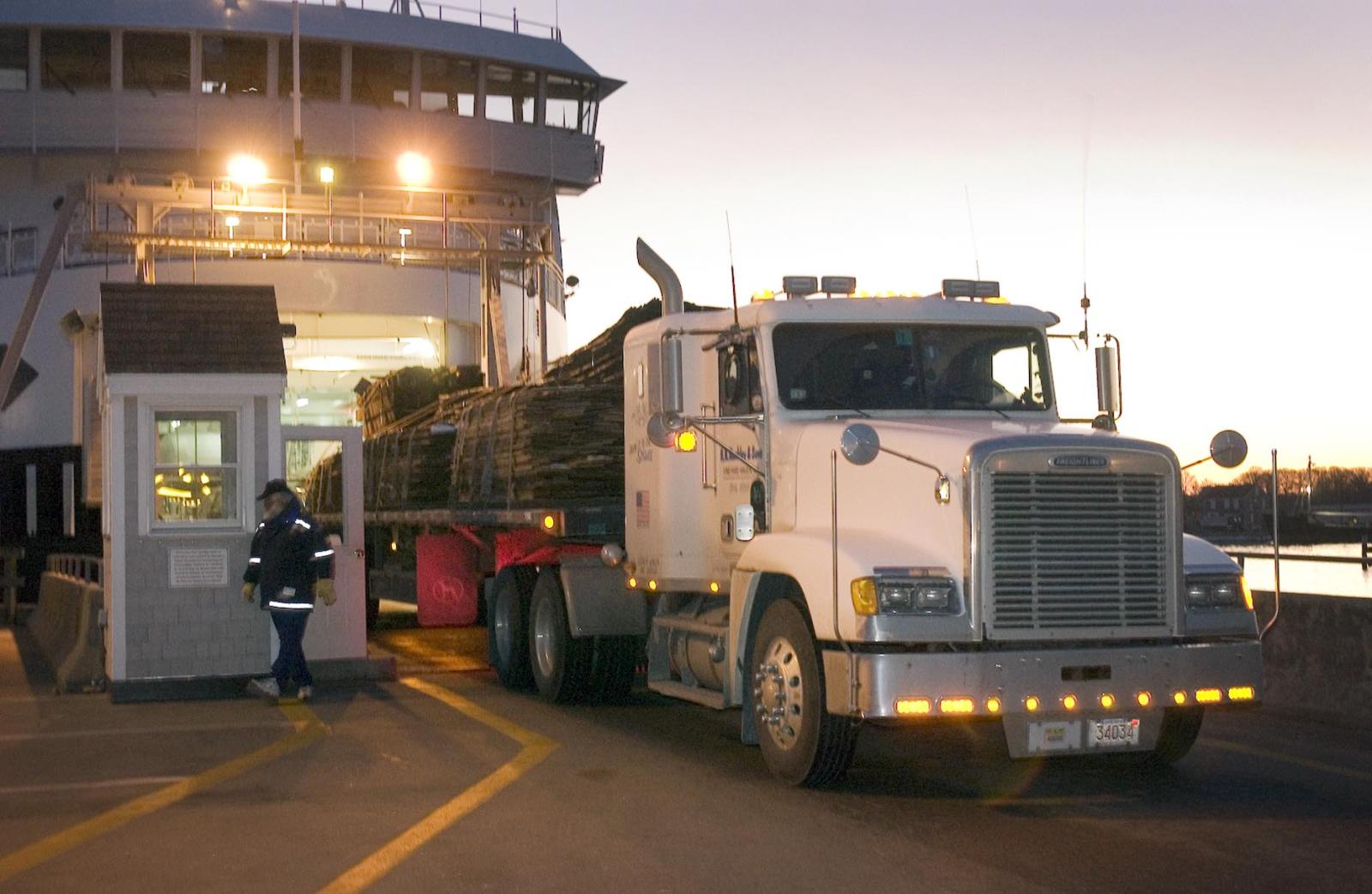The Steamship Authority appears likely to go to court to stop a Vineyard barge operator from bringing rental cars to and from the Island for the summer tourist season.
SSA general manager Wayne Lamson told a meeting of the boat line governors on Tuesday that repeated warnings to the barge operator had gone unheeded, and that any further shipments would bring legal action.
Ralph Packer, who owns Tisbury Towing and Transportation, said yesterday he believed the company was entitled to continue the practice.
Speaking yesterday after Mr. Packer’s comments, Mr. Lamson said the SSA planned to contact rental car companies to warn them the Packer company was not licensed to transport their cars.
But this had also been tried before, without effect.
“We’re just waiting for the next time it happens and we’ll do what we have to do,” Mr. Lamson said.
He said he had written to Mr. Packer twice about the matter, most recently in September, and also had spoken directly to him, warning that he could not lawfully transport cars unless licensed by the SSA.
“I see the vehicles going over on a barge and then I write a letter and then I see the cars coming back,” Mr. Lamson said.
“We have previously sat down to talk about this, and it is clear he is not going to change his ideas on what he can do . . . and he doesn’t seem to think he has to get a licence.”
At the heart of the dispute is a difference in interpretation of the provisions of the 1973 enabling act setting out the SSA as a monopoly on carrying vehicles, or licensing other operators to do so.
Mr. Packer argues that because his barge business was active before 1973, its operations are grandfathered and require no further licensing by the SSA.
While the operation was initially set up to transport fuel for Mr. Packer’s fuel distribution business, it has subsequently expanded to involve the carrying of bulk aggregate for road works, the moving of heavy machinery like cranes and bulldozers and prefabricated houses — all without special licensing.
“Our barge operation was active before the enabling act of 1973. We also were informed by a representative of the Steamship Authority [the late Grace Grossman] some years ago that they had removed tug and barge operations from the enabling act,” he said.
Mr. Packer said at least one rental car company, Hertz, preferred to charter his vessel to bring cars over in bulk because the SSA requires that every car it transports had a driver.
He did not say how many cars his company transported, or for exactly how long they had been doing it, beyond “a number of years.”
But Mr. Lamson said that in order to be grandfathered under the enabling act, Mr. Packer would have to have been operating continuously since 1973. Alternatively, he would have to move the cars from a point outside Massachusetts. The boat line enabling act only covers operations entirely within the state.
“Now, if he wants to transport them from Rhode Island, we have no control over that. But we do when he takes them to New Bedford. He should either get a license or stop transporting them,” Mr. Lamson said.
He said the SSA was willing to make a special provision to accommodate the rental car companies, such as running special night runs with one of its freight boats at the start and end of the tourist season.
In other business at Tuesday’s meeting, boat line governors approved the renewal of a $55,000 special contract with the Martha’s Vineyard Regional High School to transport teachers, students, administrators and sports officials to and from the Island, a discount of roughly 50 per cent.
They also voted to allow the New England Fast Ferry to further reduce its high-speed service from New Bedford, from three to two daily round trips, between April 15 and May 20.








Comments
Comment policy »